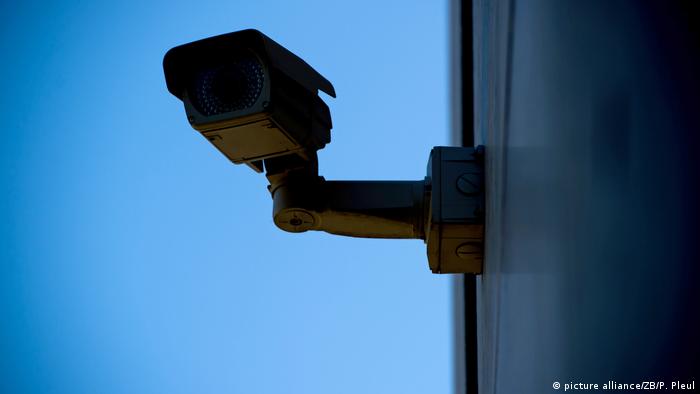Coronavirus: From bats to pangolins, how do viruses reach us?
Pangolins may be the latest link in the coronavirus outbreak, but as with SARS and MERS, bats are the most likely original source of the deadly virus. Scientists believe bats' unique genetic quirks make them ideal hosts.

As the deadly coronavirus sweeps across the globe, killing hundreds, halting cruise ships and prompting border closures, scientists race to find out exactly how the outbreak began.
Now, a new study out of China suggests that endangered pangolins — a scaly anteater — are the most likely link between the coronavirus, bats and humans.
While initial speculation pointed to seafood, snakes and another bat-borne coronavirus from Yunnan province in southwestern China, researchers from the South China Agricultural University have found that a genetic sequence of the virus from pangolins is 99% identical to the coronavirus currently infecting some 31,000 people. That means, before reaching humans, the virus was likely passed from bats to the pangolin, the most illegally traded animal in the world.
Read more: Coronavirus, cold or flu? How to tell the difference
At least 630 people have now died from the fast-moving coronavirus, known as 2019-nCoV, which was first detected in December 2019 at a live animal market in Wuhan, China.
What is it about bats?
It isn't the first time the world has witnessed an outbreak of a bat-borne virus. Ebola is thought to have originated in bats, as well as two other types of coronavirus — SARS (Severe Acute Respiratory Syndrome) which emerged in Asia in 2003 after moving from bats to civets to humans, and MERS (Middle East Respiratory Syndrome), which has infected around 2,500 people since 2012 after being transferred from camels.
This isn't necessarily surprising considering the great size and spread of the bat population, says Yan Xiang, a professor of virology at the University of Texas. Bats are the second most common mammal after rodents, making up nearly 20% of all species of mammals — there are more than 1,300 species of bat and some can live up to 40 years.
Read more: Corona-phobia: Like SARS, coronavirus fear feeds racism
But experts believe it's the bats' unique immune system that allows it to harbor so many viruses.


Bats are a common source of viruses: Ebola, SARS, MERS, and Nipah can all be traced back to them
While Xiang says scientists "don't yet have a complete picture" of this system, he points to two key elements of the mammal's immune response, called "innate immunity" — their high body temperatures and higher levels of interferon, which signals the activation of an antiviral state.
Bats are the only mammal with the ability to fly, which increases their body temperature and metabolic rate, and puts their bodies into a constant state of "fever." Some scientists believe that bats have suppressed their immune systems to cope, which allows them to tolerate more viruses.
Intermediate species
Although the coronavirus is thought to have originated in bats, this doesn't mean it was directly passed from bats to humans. Coronaviruses are zoonotic viral diseases, meaning they are passed from animals to humans, and while in the animal, the virus goes through a series of genetic mutations that allows it to infect and multiply inside humans.

Pangolins are the most illegally traded animal in the world, and used in traditional Chinese medicine
Xiang is "convinced" of the link between the coronavirus and pangolins, as suggested by the latest study from the South China Agricultural University researchers, who studied more than 1,000 samples from wild animals.
Although this study is yet to be released, Xiang says the evidence for its claims "already exists" in a paper from October 2019, which published genome sequences of sick pangolins smuggled from Malaysia to China, finding evidence of coronaviruses.
This latest novel coronavirus could likely be "a hybrid of two very similar coronaviruses as suggested in a recent paper," Xiang says.
"The virus was probably unable to infect humans directly through bats, so it had to go through an intermediate animal to further mutate in order to infect humans," Xiang told DW. The intermediate animal that facilitated the hybrid of the two viruses, Xiang says, is "most probably the pangolin," but emphasized that, at this stage, this link was speculative and would need to be confirmed by further studies.
Humans defense mechanisms keep us safe — mostly
While the devastation of such outbreaks is difficult to predict, Stuart Neil, head of virology at King's College London, says "in the grand scheme of things," events like this "don't happen very often."
"We're probably exposed to these viruses from other species much more often than we get transfers of new viruses from animals and these sustained epidemics," he told DW.
The reason for that, Neil says, is "due to our intrinsic defensive mechanisms." There is no such thing as an inherently deadly virus, he points out, because what may be harmless to one species, as shown by the numerous coronaviruses that circulate in bats, may be deadly to another.
"It's entirely dependent on the defense mechanisms of the host species and whether they can live in harmony with a virus or not."
Such epidemics are becoming more likely, though, as humans increasingly encroach on the habitats of wild animals, he warns, saying that "humans are exposed to these viruses because of how they behave and interact with animals."

CORONAVIRUS: TIMELINE OF THE DEADLY VIRUS IN CHINA AND WORLDWIDE
Pneumonia-like virus hits Wuhan
On December 31, 2019, China notifies the World Health Organization of a string of respiratory infections in the city of Wuhan, home to some 11 million people. The root virus is unknown and disease experts around the world begin working to identify it. The strain is traced to a seafood market in the city, which is quickly shut down. Some 40 people are initially reported to be infected.
DW RECOMMENDS
Coronavirus: Shunning is 'sad, wrong, no surprise'
From avoiding Chinese restaurants to banning Chinese travel groups, anecdotes of coronavirus "hypervigilance" — bordering on racism — are mounting. DW asked psychologist Joshua Tybur why and what the science says. (05.02.2020)
Coronavirus: Too soon to say if virus reaching peak, UN health officials say
Officials from the World Health Organization have said the number of new coronavirus cases in China fell for the first time since the outbreak began. But they warned the virus may not yet have peaked. (06.02.2020)
Coronavirus: Timeline of the deadly virus in China and worldwide
Since first cases were confirmed in December 2019, the flu-like 2019-nCoV virus exploded into a major health emergency, killing hundreds of people and infecting thousands more. Scientists scramble for a vaccine. (03.02.2020)
Date 07.02.2020
Author Charli Shield




















